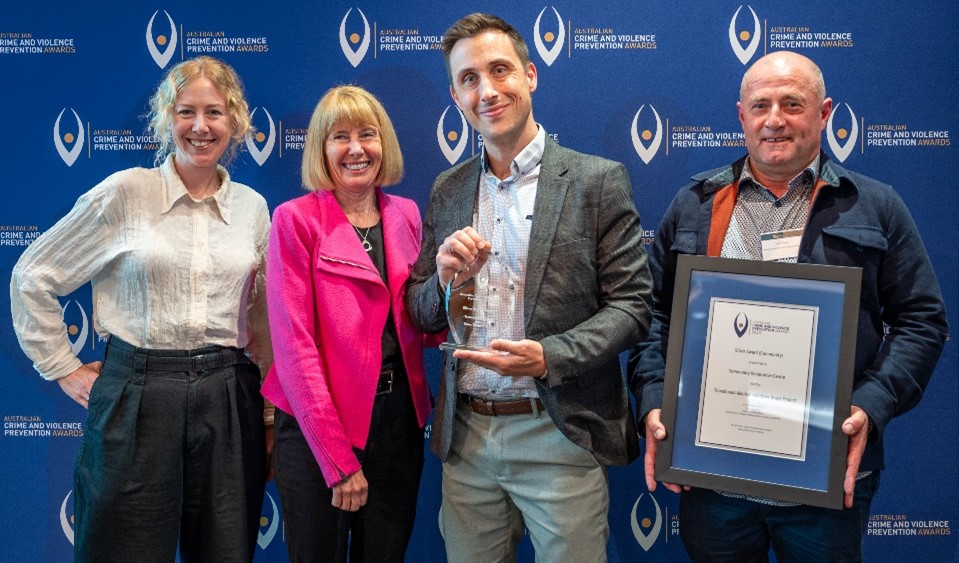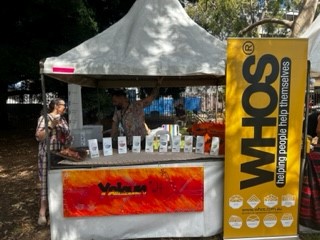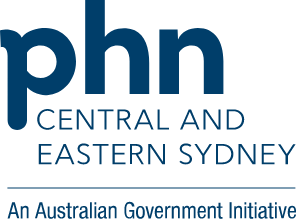Alcohol and Other Drugs
17
26,051
The principal drugs of concern for clients accessing treatment within the CESPHN region were
28
36
9.5
7.5
Of those episodes closed throughout the 23-24 financial year
75
63
79

The Community Restorative Centre’s Alcohol and Other Drugs (AOD) Transition program
The Community Restorative Centre’s Alcohol and Other Drugs (AOD) Transition Program received a Silver Award (Community) at the Australian Crime and Violence Prevention Awards (ACVPAs).
The ACVPAs recognise best practice in the prevention or reduction of violence and other types of crime in Australia and play a vital role in highlighting effective community-based initiatives to prevent crime and violence before it occurs.
The Transitional AOD Project is a holistic counselling service for people who are leaving prison or who have previously been incarcerated, providing pre-release and outreach AOD support. The project aims to empower individuals to break entrenched cycles of use and incarceration using a culturally competent, trauma-informed, and non-judgmental framework.
Many of their clients have spent most of their adult lives in prison, some with complex mental health concerns and cognitive disabilities, and this is the first therapeutic service that most have had access to.
“This is a long-term program with a much-needed focus on reducing AOD use in our communities by regularly engaging people within the criminal justice system. This has seen significant reductions in offending as well as cost positive benefits,” said Australian Institute of Criminology (AIC) Deputy Director Dr Rick Brown.
It was an honour for Community Restorative Centre (CRC) to receive this award on Ngunnawal land in Canberra and for the PHN’s AOD team to attend the AIC Conference, convening with other practitioners, policy-makers, and academics to discuss contemporary issues impacting the crime and justice sector Australia. This recognition is a testament to the dedication of CRC’s excellent frontline workers and the strong evidence base of effectiveness, as described in the evaluation paper.
The award is dedicated to CRC’s incredibly resilient clients who have survived so much before they enter prison and then, by necessity, become survivors of incarceration. They have committed crimes and they have been punished for them, but they are not defined by their previous behaviours. Despite the seemingly endless barriers clients face they find the insight and motivation to try something new by accessing CRCs therapeutic support.
We Help Ourselves (WHOS) Aboriginal Engagement Worker
WHOS provides a range of evidence based therapeutic residential and day programs aimed at achieving recovery from alcohol and other drug dependence, incorporating harm reduction and co-existing mental health initiatives.
Central and Eastern Sydney PHN has commissioned capacity building projects to enhance and add value to the WHOS service delivery model, including an Aboriginal Engagement Worker position based at the WHOS Lilyfield campus.
As well as providing individual cultural support to First Nations service users across all of the programs based at Lilyfield, Alan, the Aboriginal Engagement Worker has developed a wide range of programs and activities. Some are targeted to First Nations service users only but the majority are open to all, with the aim of bridging the gap between different cultures.
There are regular yarning circles, Aboriginal lunches and smoking ceremonies. Significant dates such as NAIDOC week, Reconciliation Week and Sorry Day are commemorated. External events such as Yabun festival, Bangarra Dance Theatre and Souths NRL community days are attended.
Cultural care plans have been reviewed and improved to enable a cultural focus for Aboriginal and Torres Strait Islander service users and are aimed at connection to culture. Cultural induction groups have been developed to provide all new service users with an overview of the workers position and cultural activities. This has become part of orientation to WHOS services and provides those individuals that have not felt comfortable identifying their Aboriginal and Torres Strait Islander status the ability to feel supported to do so.
The result has been increasing numbers of Aboriginal and Torres Strait Islander clients entering WHOS services and an increased level of cultural awareness and safety.


